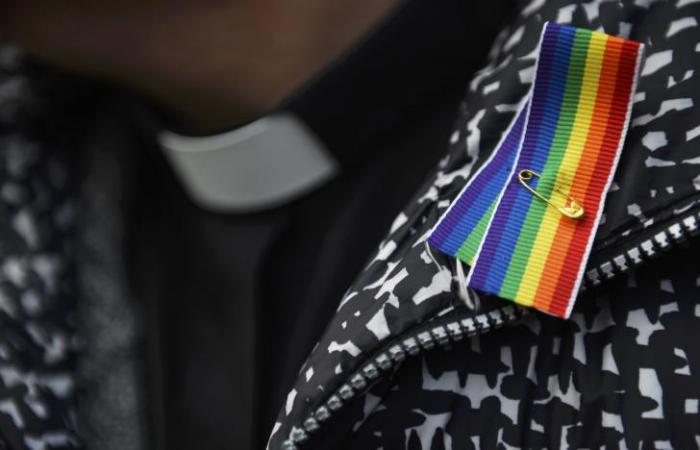Church Clarity Database Scores Churches Based on Whether They Are LGBT Affirming

UPDATE: To view Church Clarity's response to some of the concerns and questions raised, click here.
A new online database has been created that ranks churches based on whether or not they are LGBT affirming.
The website and online database Church Clarity was recently created by a group of LGBT-affirming Christians whose stated goal is to provide followers of Christ with more transparency about churches' policies on such things as officiating a same-sex marriage or allowing a transgender person join a women's group.
The Church Clairty website currently only lists the views of a handful of well known evangelical churches and megachurches across the country and is encouraging people to submit the views and policies of churches near them to the database.
According to Church Clarity's submission form, anyone can submit information about churches and they "will verify all submissions and decide whether or not to publish it on our public church database."
Church Clarity's frequently-asked-questions page states that their goal "is to eliminate the prevailing reality — among evangelical churches but also beyond — where ambiguity is acceptable, where accountability is rare and where pastors are able to conceal the policies that they actively enforce."
"... Even when directly asked, many church leaders do not give straightforward answers about the church's policies toward LGBT people," the FAQ page adds. "It often takes multiple conversations and years of relationship-building before clarity is delivered — and by then, the damage is already done. It is unreasonable to expect people to jump through hoops to learn how policies that affect them will be enforced."
The Church Clarity leadership team is comprised of two co-founders who identify as gay and queer and one who works for an LGBT-affirming church in New York City. Church Clarity maintains, however, that it's not interested in "evaluating theology or doctrine" of churches but rather their "organizational policy," and insists that its goal is not to have churches "conform" to the organization's personal LGBT-affirming policies.
"Policies are much more straightforward and have clear impact on people. Will your church let a trans woman join a women's group? Will your pastoral team officiate a wedding for a gay couple? These are the policy questions we are seeking to clarify." the FAQ page continues. "What we're not interested in: A church's theological position on whether queer Christians go to Heaven, whether same-sex attraction is natural or chosen, how gender plays out in the story of Adam and Eve, etc."
The Christian Post contacted Church Clarity for comment and will update this piece if a response is received.
As of Friday afternoon, the database lists about 40 churches whose websites are graded in four categories: "Clear: Affirming," "Clear: Non-Affirming," "Unclear Non-Affirming" and "Undisclosed."
Religion News Service's Jonathan Merritt reported that although Church Clarity's goal is to provide more clarity on both sides of LGBT issues, "the organization curiously does not list any liberal congregations that are classified as unclear."
In addition to the LGBT-affirming beliefs of the organization's leadership, Church Clarity advisory council member Julie Rodgers is an advocate for same-sex marriage in the Church and is an openly gay Christian who made headlines when she resigned from her role as a spiritual care associate at Wheaton College.
"In a time when the Church is bitterly divided over sexual ethics and LGBT issues, it is, well, unclear, whether Church Clarity's effort will create more division or less," Merritt wrote. "[W]e don't want to further polarize the Christian community on an issue that is riddled with nuance. If Church Clarity has its way, the messy middle on this issue will shrink or be eliminated."
The emergence of Church Clarity has inspired some Christian leaders and scholars to voice their opinions about the website on social media, some fearing that Church Clarity is "lumping" churches.
"I appreciate clarity. What troubles me is the implicit claim that 'non-affirming' churches can't be good homes for LGBT folks," Wesley Hill, assistant professor of biblical studies at Trinity School for Ministry in Ambridge, Pennsylvania, wrote in a tweet.
Hill wondered how the database would account for churches like those affiliated with the Reformed Church in America and The Episcopal Church "that are 'affirming' but cannot sanction [same-sex marriage] by diocesan/classis rule?"
"Are they 'safe'?" Hill asked in a tweet.
"I just wonder/worry about the rigor of ideological purity on all sides of this," he added in another tweet.
Hill's tweets were responded to by Larycia Hawkins, a Church Clarity advisory council member who was suspended from her role as a political science professor by Wheaton College in 2015 after she claimed on social media that Christians and Muslims worship the same God. Hawkins is now employed at the University of Virginia.
"I hear ur concern. I'm concerned that folks aren't taking seriously the need for #ChurchClarity. I've been in churches where LGBT friends ... have been all but exiled for no other reason than sexual orientation," Hawkins wrote in a series of tweets. "I realize that some non-affirming churches 'accept' even embrace LGBTQ humans. I myself have remained in a church that did not ordain women while I myself believe firmly in women in ministry — I stayed because I loved other commitments — multiethnic, multiclass. I left soon after a gay friend was denied communion for being gay. Period. The fact that non-affirming priests will preach the love of Jesus to the gays does not negate the fact that #ChurchClarity can save folks."
Denny Burk, a professor of biblical studies at Boyce College in Kentucky, wrote on his blog that he found a number of problems with the Church Clarity website. One of the problems he believes is the fact that the database overlooks the theological side of the debate.
"The clarity that this group calls for falls short of the clarity that Jesus requires (2 Cor. 4:2). Being clear about policies is fine. But even more central is being clear about what a church believes. A church's policies ought to be grounded in clear biblical teaching, but Church Clarity does not aim at 'evaluating theology or doctrine,'" Burk wrote. "And yet this is precisely what the Lord expects churches to do. Followers of Christ will recognize that no one is served by putting theology and Bible on the backburner. In fact, that is a recipe for falling into the same kind of error that the founders of Church Clarity are into."
"Again, keep in mind that Church Clarity doesn't want theological or biblical clarity," Burk added. "They only want churches to advertise whether or not sexually immoral people can participate in every level of a church's membership and leadership. It doesn't matter to them whether the church's website is theologically or biblically clear."




























